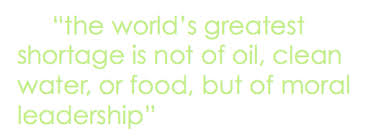The moral foundations of economic prosperity
< < Go Back
A Chinese scholar tried to explain the reason for the West’s prosperity and found that the Christian faith was the key reason . . .
Harvard economist Niall Ferguson quotes a scholar from the Chinese Academy of Arts and Sciences who tried to explain the sustained preeminence of the West, our power relative to the rest of the world. The first conclusion was that our preeminence arose from our having better weapons. Finally they concluded that it was our economic system. “But in the past 20 years, we have realized that the heart of your culture is your religion: Christianity,” Fergusson quotes the Chinese scholar. “That is why the West has been so powerful. The Christian moral foundation of social and cultural life was what made possible the emergence of capitalism, and then the successful transition to democratic politics.”
How can we verify his conclusion? Here are three moral principles drawn from Catholic doctrine, along with empirical evidence of the economic consequences when these principles are violated.
Sanctity of human life. While the conventional wisdom is that lower population leads to economic development, there is strong evidence to the contrary.
Dr. Maria Sophia Aguirre, an economist at The Catholic University of America, recently published a study on Guatemala using 50 years of economic data. She found that the fertility rate was positively correlated with economic growth. In other words: the more children, the more prosperity.
John Mueller at the Ethics and Public Policy Center has made an empirical case that if abortion had not been made legal, we wouldn’t be facing a social security crisis. The contributions from the 50 million children aborted since 1973 would have been more than enough to maintain the solvency of our social security system.
Marriage. The principle here is of the indissolubility of marriage and, more broadly, that it’s best for children to be brought up by a mother and father who are and stay married to each other. The empirical research on the positive economic implications of the family is overwhelming. Dr. Pat Fagan at the Family Research Council has collected extensive research that shows families create stronger human capital. Poverty in intact, never-divorced families is around 12%. For single parent families, it’s 58%.
Religion. The principle here is “you shall love the Lord your God with all your heart, with all your soul, and with all your mind” (Mt 22:37). People who are religious tend to be more moral. A 2010 paper in the Journal of Business Ethics concluded that “enough evidence exists to state that individuals who have stronger religious beliefs, whether business practitioners or consumers, tend to have stronger ethical norms and judgments than those with weaker religious beliefs.”
We can therefore expect that religious people cause fewer ethical problems. But it goes deeper than that. Fagan has also gathered extensive research on religion. He found all kinds of good things associated with religious practice, particularly church attendance: The more frequently children attend church, the higher their grades are, the less likely they are to get drunk, do drugs, or run away from home. All these things have important implications for the development of human capital, and therefore for economic outcomes.
The common sense aspect of this is clear: Without a sense of a higher calling, it’s difficult for the average person to rise above human weakness and become a strong contributor to society. It’s not impossible, but it’s difficult.
More From legatusmagazine.org:




